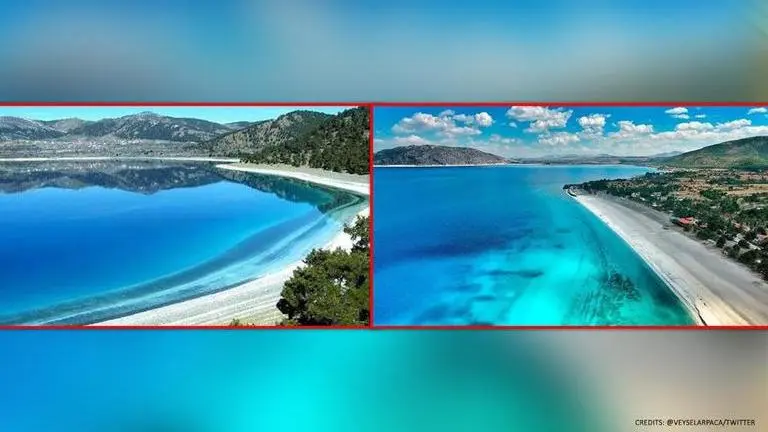Updated 29 April 2021 at 13:39 IST
NASA believes Turkey's Lake Salda hides secrets about Mars, here's what makes it special
The picturesque Lake Salda in Turkey, which NASA thinks hide secrets about Mars, now threatens to become too popular for its own good.
- World News
- 2 min read

The picturesque Lake Salda in Turkey, which NASA thinks hide secrets about Mars, now threatens to become too popular for its own good. According to EuroNews, Lake Saldi gained international renown when US Scientists began poking around in preparation for the Perseverance rover mission. The Jet Propulsion Laboratory had even posted a picture of the lake on its site before touchdown, saying it might resemble what an “aqueous” Mars looked like billions of years ago.
Experts had said that the rock deposits and minerals found in the lake are the closest matches to those found on the Red Planet. Servet Cevni, a geological engineer said that the Jezero Crater, a former lake on Mars that the rover is now exploring, has a strong resemblance to the lake. Cevni even added that Lake Salda has remained unchanged for 3.5 million years.
Though located a world away, Lake Salda, #Turkey, has geological similarities to Jezero Crater on #Mars. In fact, researchers even did field work at Lake Salda to prepare for #CountdownToMars and @NASAPersevere. https://t.co/jrKoWrbVwe pic.twitter.com/xB2GGgYfbr
— NASA Earth (@NASAEarth) July 30, 2020
However, now, the 16.9-square mile lake in Turkey’s southwest has been picked by President Recep Tayyip Erdogan as part of a project to create more green spaces for public use. Local activists and lawyers fear that the twin blows of NASA and Erdogan’s interest could open the floodgates to tourists. They say that the sea of humanity could destroy the very ecosystem that made the lake special in the first place.
Future of lake at ‘risk’
Lake Salda Preservation Association head Gazi Osman Sakar said that the future of the lake is at “risk” if millions of people come. It is worth mentioning that the lake is most famous for the White Islands area with brilliant sands, as well as endemic flora and fauna such as the Salda seaweed fish. There are also minerals of different origin and NASA thinks that one of them - hydromagnesite - is similar to the carbonate minerals detected at Jezera Crater.
Advertisement
NASA said that the hydromagnesite sediments along Lake Salda's shoreline are thought to have eroded from large mounds called 'microbialites' - rocks formed with the help of microbes. They added that this all folds into the mystery about possible life on the Red Planet, in some microbial form a very long time ago. But now, with outside intervention and small buildings near a planned People’s Garden by the lake, experts say if people continue to reside near the lake, Salda is finished.
(Images: @ragipsoylu/Twitter)
Published By : Bhavya Sukheja
Published On: 29 April 2021 at 13:39 IST


